Paravartya
As seen before Paravartya Sutra of Vedic Mathematics means ‘Transpose and Apply’.
Prerequisites:
Equation should be in following manner.
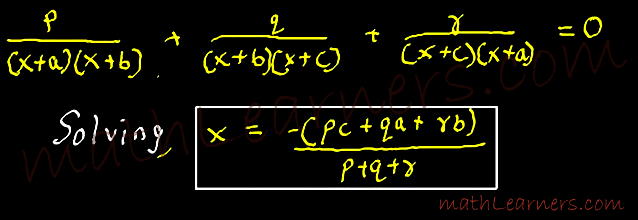
As can be seen Numerator is obtained by addition of each term multiplied by absent term with sign reversed(Transpose).
Examples:
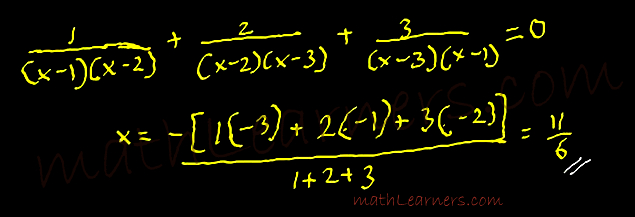
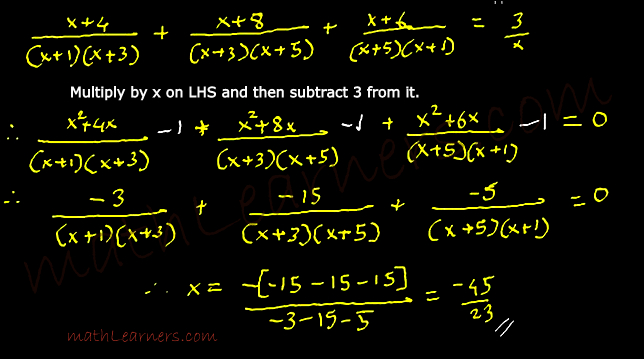
Sopantyadvavyamantyam
Sanskrit Name:
सोपान्त्यद्वयमन्त्यं
English Translation:
The Ultimate and twice the penultimate.
Meaning:
If Equations are in the below form then 2C(penultimate) + D(ultimate) = 0
Examples:
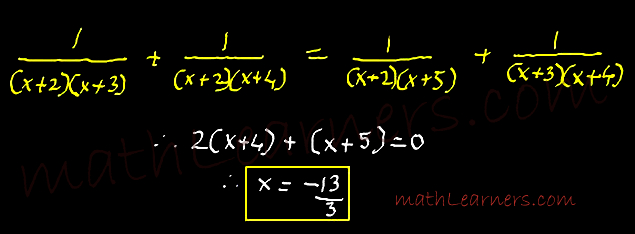
Antyayoreva
Sanskrit Name:
अन्त्ययोरेव
Meaning
It has different meaning in different context.
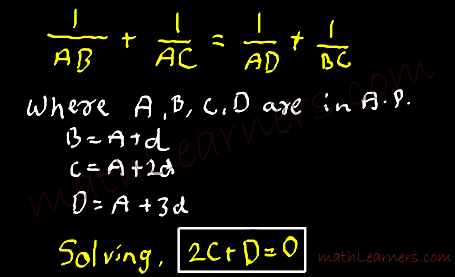

Leave a Reply
You must be logged in to post a comment.